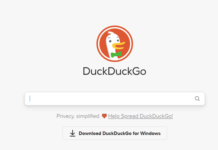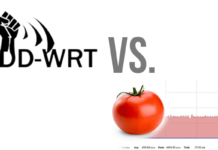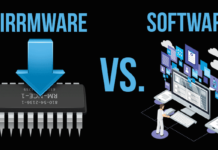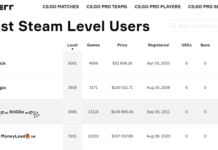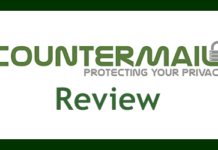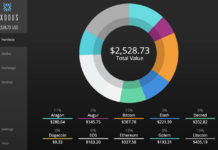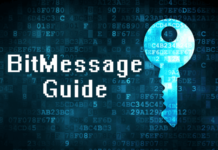Facebook has recently been in the talks for the Cambridge Analytica data breach, which in turn shed light on a lot of other privacy issues and loopholes which were earlier only speculated by users.
Infact, when the knowledge of the scandal was made public Facebook lost over USD $119Billion in its market value, in a day, that cost Mr. Zuckerburg a personal USD $17Billion also 3 Million users from Europe reportedly walked off the network!
What I could incur from the official testimonies presented before Congress, or released to the Media is that data from over 87Million users, 70 Million of which were American citizen was harvested by Cambridge Analytica, a Political Consultancy firm and then used to influence the American Presidential Elections.
This even on the surface level sounds just like what Terrorists do, just not digitally! Another major news for most of you would be that Facebook used to buy user data from as many as 6 data brokers which are DataLogix, Epsilon, Acxiom, Experian and Quantium.
The details these data included is equally surprising, such as “Can you tolerate or like people with Darker colours”? Do you Breast, or Bottle feed your baby? But since the Cambridge Analytica data breach, they seem to have terminated the practice.
How Does Facebook Spy on You and How to not Let it.
Let’s not beat around the bush and directly introduce you to the ways the company tracks and records your moves and actions, and how to Stop Facebook from Spying on you.
The most commonly accepted and rumored conspiracy theory around Facebook spying is – Microphones!
Have you ever just been talking about Getting a new mixer, or just planning that trip to Japan with your friend, without any online activity related to either of them, and Facebook just starts showing you ads related to those?
The most common explanation to this was, Facebook was listening to your Microphone at all times, which isn’t true but not completely false either.
Microphone?
Facebook doesn’t “listen in” on all your conversations just throughout the day, but it “can” as is evident from the statement given by a Facebook spokesperson to NBC4i- “We use your microphone to identify the things you’re listening to or watching, based on the music and TV matches we’re able to identify.“
It’s worth noting that they do not exactly spy on you and only use the Microphone when required for certain things to be possible with the app (like video recording), but then again the possibility of them being able to does creep me out.
So how do those ads show up for products you’ve only been talking about? You need to understand that “Facebook” itself doesn’t show as many ads as individuals like us or corporations do. And these ads aren’t “individually” targeted (usually)¸and rather are targeted for groups.
So if there’s an event happening in your neighborhood, even if you’re just “talking” about it, chances are other people from your locality of your age-group have searched for them online, some of your friends too maybe?
Regardless of the people being or not being in one another’s friends’ lists, advertisers target these ads for localities, age-groups, and interests; and sometimes what you’ve been talking about coincides with the ads you see.
How to Stop Facebook From Spying on your Microphone
Both on iOS as well as on Android devices, the system administrators (you) have the supreme power over the apps, and the features or services those apps can access on your devices. As long as these options are turned on or off, no other options inside the apps matter.
Hence, on Android Simply head over to Settings > Installed Apps > Facebook > Permissions > Microphone. Slide the microphone slider to “Off”.
![]()
On iOS devices, Go to Settings > Privacy > Microphone > Facebook and again slide it to off.
Note that you can also turn off the permissions for Calendars, Cameras, Media and so on, and also you might as well want to turn off the Microphone permissions for Instagram, Facebook Messenger or other such apps as well.
There are some other ways Facebook tracks or targets you as we’ll talk about next and you’ll see how almost each of those points can be used to spy on you without you even being on Facebook!
Location
This isn’t even a secret anymore, Facebook “DOES” track your location. No excuses, it just outright DOES!
This is why when you upload photos, it shows your location automatically which you can tap on to include with your post.
The official explanation for this is- Location based content. So they can show you the nearest hotels, hospitals and everything else. Or just ads related to the location you’re at.
Or that features such as “Friends nearby” require location tracking in order for Facebook to let you know, or your friends know about you when you’re close to them geographically.
Although location tracking is another explanation for the Microphone myth, if you walk into an Adidas showroom and Facebook detects it, it may show you an Adidas ad next simply because of its knowledge of your interest in Adidas.
Yet another explanation for the Microphone myth that can be linked to locations is, when Facebook detects you being at a new location, India per say, it’s advanced enough to know you’re most likely to visit the Taj Mahal, or India Gate and hence may show you ads related to those such as Travel agencies, Taxi services and so on even if you have only “talked” about going there.
How to Stop Facebook from Spying on your Location
On Android devices, users can go to Settings > Installed Apps > Facebook > Permissions and again turn the slider next to “Location” to Off.
![]()
On iOS devices, it’s Settings > Privacy > Location Services > Facebook > Never.
Off-Facebook Online Web Habits
Facebook doesn’t just track you when you’re using the website or app, but also when you aren’t!
Facebook makes use of “Pixels” which is basically how Facebook gathers information about your visits and actions on other websites. For e.g. when you visit website X and do not actually buy any product, but maybe just click on one, Facebook knows you did that.
Or maybe when you added something to cart but didn’t purchase? Facebook can track that as well. Later advertisers can target those specified individuals according to their actions and it’s just one of the ways Facebook tracks users off-site.
How to Stop Facebook from Using your Pixels to Target you
Head over to the Facebook app, click on Settings > Ad Preferences > Ad Settings > and disable “Interest Based Ads”. If you don’t see the exact option, select “Ads based on Data from Partners” and disable it.
![]()
Another Alternative is using Addons like Ghostery. It can be used to check the trackers running on websites and lets you disable them.
Offline Purchases
If you thought you’re only tracked online, you’re dead wrong! Everytime we purchase something, we enter our E-mail ID, name, number (atleast one of these) in order to redeem or increase our loyalty points.
Facebook has access to the payment processors’ data, hence it knows exactly what’s there in your bag (as everything is included in the bill) and makes use of this data to show relevant or similar products in the ads.
Similarly it also knows your spending ranges (amounts you generally spend), stores you frequent and so on, using these data it groups each user into its micro-categories.
How to Stop Facebook from Spying on you Offline
Considering how it’s not directly linked to Facebook, there’s no button you can simply press to stop this from happening.
But, an easy way out would be to either stop using Loyalty cards, or link them to an E-mail ID, Cell number which isn’t associated with your Facebook account.
Note that even then Facebook has ways of linking those purchases to you, but it should get you some wiggle room.
Calls, Text and Contact Tracking.
This is yet another major, direct method Facebook tracks the very personal details of your life.
It asks for permission to access your contacts when you first launch Facebook and most people simply click yes, which grants Facebook access to every contact in your list and also the permission to auto-check the list for new contacts and add them to its database.
It also tracks call and text details such as who you talk to in real life, the duration of the call, time the call was made etc. Although note that it doesn’t “record or access” the call/text itself, meaning it doesn’t have access to “What” you talk about, but only the details of the call/text are stored.
Those are some very private details and I’m positive none of you would like it on a platform which has faced as much criticism and legal actions on the Privacy front as Facebook.
How to Stop Facebook from Spying on your Contacts List
On Android Devices head over to Settings > Installed Apps > Facebook > Permissions > and turn the slider next to “Contacts” to off.
Additionally, go to the Facebook App > Settings > Contacts Uploading and turn the auto-uploading to off.
![]()
Then also turn off the “Calls and Text history uploading” slider as well.
![]()
Face Recognition
Facebook’s Facial Recognition algorithm is one of the best in the world, it’s how Facebook knows who’s in a picture without anyone mentioning that person at all.
And as the timing of this piece coincides with the currently trending #10YearChallenge, it’s speculated that this may actually be a gambit used by Facebook to refine and add more details, data about a person’s Face to its Facial Recog. Database.
Kate O’Neill recently tweeted her reservations regarding the trend, in a pretty creative tweet. Bottomline, Face Recog. is definitely “progressive” but also privacy breaching to quite an extent.
![]()
Fortunately it’s easy to disable this, simply fire up your Facebook app, go to Settings > Facial Recognition > and turn the slider to off.![]()
Real Life Personal Documents
The last major privacy breach that Facebook has designed is that it disables some accounts on various grounds, and asks for personal documents such as Driver’s license, social security number, Voter Card and so on to unlock the account.
This would mean Facebook would literally get a hold of your real-life identity by the core, and unfortunately the only ways to stop Facebook from getting those details are:
- Be extremely careful as to not post violent, illegal posts so that the account doesn’t get banned in the first place.
- If it does get banned, it’s plausible to forget the account and start a new one (if possible) rather than ransoming those documents.
Ways to Stop Facebook from Spying on you on PC.
We’re done with almost everything that can be done on the Facebook website/app, here are just some more off-site ways you can use to stop the social media giant from getting too close to your personal life.
1. Separate, Anonymous Browsers
Facebook tracks you, even when you’re on other tabs and websites, and even if you’re signed out of your Facebook accounts! Out of the many ways it’s done, the most common is Facebook’s likes and share buttons found on numerous websites for sharing articles, videos etc.
The easiest way out of this is, using a different, clean browser on which you’ve never used Facebook, ever. The best options? Use one of the following:
You may have heard of Tor, probably, for all the wrong reasons. No, Tor isn’t an “illegal” browser. And no, it’s not only used by “hackers” and “dark web users”.
Rather, in the simplest of sentences, it’s another browser which just implements extremely advanced techniques to keep you anonymous and your activities private. Now that is why it’s famous among the hackers and dark web goers.
But, it can be used by anyone even with the simplest of intentions (yes, such as browsing Facebook anonymously.) If you scroll down to section #4, you’ll see a complete section dedicated to helping you use Tor with Facebook.
You can obviously use the clearnet version of Facebook over Tor as well, it’s just less-anonymous.
If you need a bit more explanation, well, Tor uses “nodes” which are like “pit-stops” for your internet connection. Your connection bounces from one to the other “node” before finally exiting through one such node and connecting to Facebook (or any other website you’re accessing).
Now, even these nodes can’t see your connection-history. So, they can’t trace you through the network of nodes you’ve connected to reach them. And hence ,the exit-node has no idea who or which was your entry-point (node.)
This changes your IP address (because ,the destination website will see the IP address of the exit-node, and not you). Tor also has a number of other features which anonymize you by default. In fact, you should check our guide on how to use Tor to protect your privacy online. It’ll be helpful, I promise.
In case Tor seems too overwhelming for you. You can also try Epic browser. Not as anonymous as Tor, but, still respects privacy to quite an extent.
2. Opt Out of Interest Based Ads
Facebook let’s us opt out of its “Interest based ads”, so your interests will then be something of lesser importance to Facebook, and hence lesser trackers for you.
- OptOut for U.S Citizen – http://www.aboutads.info/choices/
- OptOut for Canadian Citizen – http://youradchoices.ca/
- OptOut for European Citizen – http://www.youronlinechoices.eu/
You should disable the ad-blockers and other cookie-restricting scripts if you have any for these sites to function properly.
Also note that the U.S site which I tried, 8 times to be exact always showed an error saying my connection was too slow. And once I solved that, another message showed up saying I need to tweak some of my cookie settings.
![]()
Bottomline, they make it hard to opt-out, but with enough efforts and by solving the problems being shown, it’s possible.
3. Browser Tweaking
Here are some basic steps which can be followed in order to stop Facebook (and other sites) from getting your cookie data.
On Google Chrome, Click on those three horizontal lines on the top-right corner and go to Settings > Content Settings > Cookies > and enable the “Block third-party cookies” option.
![]()
On Firefox, click on those horizontal lines on the top-right corner > options > Privacy and Security > Cookies and Site data > and choose the “Never” option for “Accept third party cookies and site data” option.
Then, install the free Facebook Container addon to hammer in the final nail in the coffin of those Facebook algos spying on you.
4. Shift Permanently to deep web Facebook
In my personal opinion, it’s best to just “not” have a Facebook account. But we all know the breakup wouldn’t be that easy. There’s an easier alternative.
Once you’ve downloaded Tor browser, go to this URL https://facebookcorewwwi.onion/ and register yourself a new account. This is the Deep web or the Tor version of Facebook.
It too can track you, but the extent will be extensively lowered. For e.g. Tor by itself is extremely anonymous, so your IP address, browsing habits, location etc. wouldn’t be tracked. Using the above URL is 100% legal.
It’s of utmost importance that you create a new account. Else, they know who you are on your old profile, those details would just be linked to your Tor login rendering the efforts useless.
The features are exactly alike the normal Facebook version, just with a ton of added privacy.
5. Do not “Sign up with Facebook” on third-party websites
I totally understand the ease and comfort of clicking the “Sign up with Facebook” button on a site and getting signed up in seconds.
But as soon as you do that, you’re opening yourselves up to a ton of vulnerabilities. At this point, it’s not even about “Facebook” being able to track you. Cause that it can, obviously.
But, the third-party websites you signed up on can now track you as well. If you go through this report , you’d see how third-party websites and scripts literally collect your entire life without your knowledge.
Atleast seven different data-stealing scripts were identified capable of scrapping data off the Facebook login API.
![]()
The Adthink script was believed to collect not just your name, date of birth, and location, but also your interests, insurance data, education, occupation, vehicle-details, loans and so much more.
That’s just one instance. And even though Facebook and other involved parties now claim the script has been terminated, or the loopholes patched, you can never be sure. There always will be a new vulnerability to exploit, always.
Here’s more proof. Some of the world’s most popular sites (literally) had such scripts embedded on them.
Note that “signing up” also includes Sweepstakes and other such promotional tactics.
I’m sure you’ve seen “share to get a gift“, “like to download“, raffles and other similar promotions on sites.
Entering these via your primary Facebook account too is a privacy-breach.
Note that it isn’t Facebook’s fault, or intention to let this happen. It does happen nonetheless considering how Facebook is literally the most data-rich social media on the platform
Additionally, it’s not just the third-party apps/scripts tracking you.
You’re linking Facebook, to another app.
That’s like literally telling Facebook “Hey guys, this is me, and I use these apps“.
Don’t you think Facebook searches exactly for this information?
Let’s say you login to a game app, Facebook tags you with a “game lover tag” and can then show you ads related to gaming!
So all I’d say is, go the extra mile and enter your e-mail and password (preferably an Anonymous E-mail ID) while signing up on platforms.
6. Use a VPN.
It wouldn’t hurt to start using a VPN. VPNs would offer you an additional IP address, mask your location, and even encrypt your internet traffic as a whole.
| NordVPN | Surfshark VPN | AtlasVPN | ExpressVPN | TorGuard VPN |
|---|---|---|---|---|
1. NordVPN | 2. SurfShark VPN | 3. AtlasVPN | 4. ExpressVPN | 5. TorGuard |
Now note that VPNs aren’t “very” effective against Facebook-tracking.
Simply because, the VPN can only change your IP address.
But, you’ll still be using the same Facebook account on the same browser, to browse all the other websites.
This is why I recommended using separate browsers for your Facebook browsing and other activities individually.
If you need true privacy though, using a VPN + TOR for accessing the deep web Facebook, and using a clearnet browser (preferably Brave browser, but Google Chrome will do too) is the best possible option.
If you do this, there’s not many ways Facebook can link your clearnet activities, to your Facebook account or even your IP address.
Final Words:
So those were the 7 most common practices, methods how Facebook collects user data and tracks/ spies on them.
Note that these 7 practices are only the cherry on the top as compared to the actual arsenal of privileges Facebook has when it comes to accessing or gathering user data, but those are well-hidden or just not as easily recognizable.
Even then, if we can stop Facebook from spying on us even on these basic levels I believe a lot of our privacy would be saved from becoming rows of data on someone’s ledger.
Do let me know if there are other insights you have on the topic, questions, solution, or just Intel is appreciated as well.
